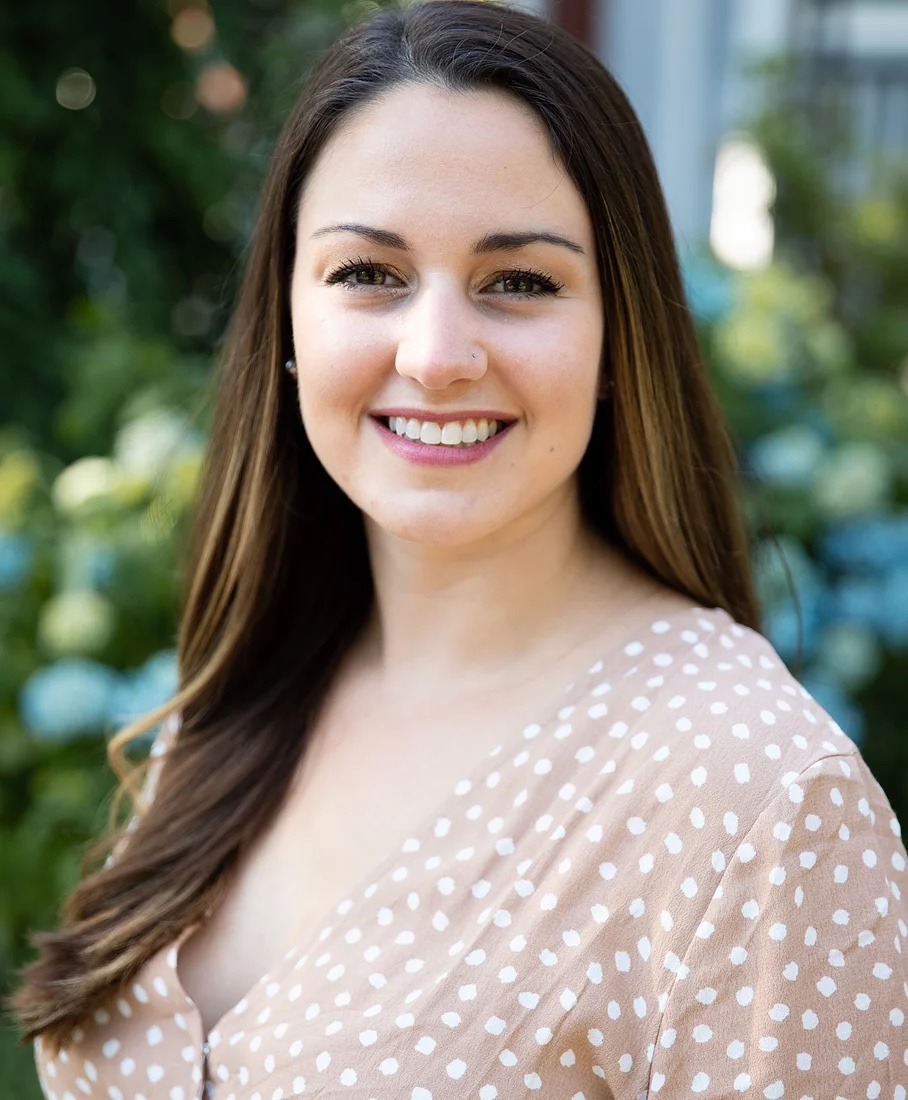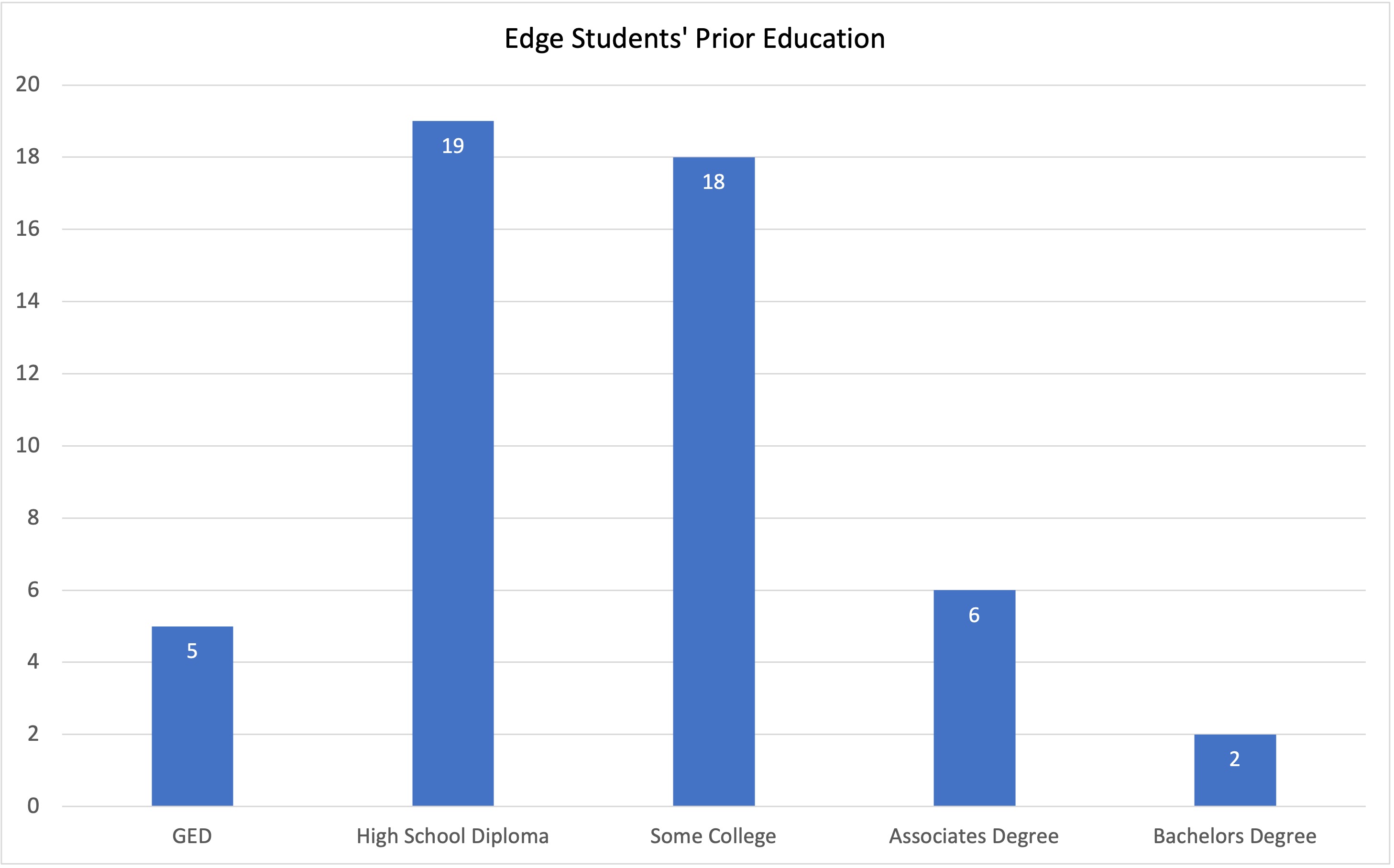UVA Edge for Success
 Alexa Jeffress is the Program Manager for Edge and Launchpad in the School of Continuing & Professional Studies at the University of Virginia. UVA Edge is celebrating its first year of success, and Mrs. Jeffress reflects on lessons learned and the future of SCPS' newest program for adult learners.
Alexa Jeffress is the Program Manager for Edge and Launchpad in the School of Continuing & Professional Studies at the University of Virginia. UVA Edge is celebrating its first year of success, and Mrs. Jeffress reflects on lessons learned and the future of SCPS' newest program for adult learners.
Photo credit: Emza Joy Photography
Three Lessons We Learned in Our First Year of UVA Edge
UVA Edge is something new in the University’s 200-year history: an online program designed for adult learners, including those who work on Grounds. Working adults from UVA and the community are taking classes to jump-start their college education, build upon prior educational experience, prepare for future promotions at work, or simply to be academically challenged.
The School of Continuing and Professional Studies and the College of Arts & Sciences created UVA Edge as a way for adults with busy lives to earn 20 undergraduate credits that can be applied toward an associate’s or bachelor’s degree. However, many students cite more personal reasons for joining Edge, such as self-satisfaction, pride in their ability to further their education, a way to set an example for their children, and more.
Here are three things we learned from our first cohort of 27 students – including UVA employees from all corners of the University – who will finish the program this December.
Lesson 1: Adult Students Want to Learn
Edge helps working adults with little to no college experience feel comfortable and confident in returning to the classroom. One of the biggest rewards we have observed is the confidence Edge students have gained in their ability to build on their education and enhance their career potential. Students in this cohort are overjoyed at the opportunities Edge has brought them – from the tangible credits they are receiving to the intangible sense of pride after earning those 20 credits. Our hope is that students use this momentum to continue to construct a brighter future, in whatever variety is best for them.

Figure 1. Edge Students’ Prior Education shares the highest level of education of n=50 students currently enrolled in Edge across three cohorts.
Lesson 2: Community Works in Higher Ed
In each cohort, students support each other, create bonds, and learn from each other’s life experiences. UVA President James Ryan has been an advocate for the program from its start and even made a guest appearance in the virtual classroom space during the “Knowledge in the Digital Age” class meeting in their first semester. The students were excited about the opportunity to meet President Ryan and see his support for their academic pursuits. During their “Capstone” course – the final culminating experience of Edge – students have highlighted the aspects of Edge they like most. They consistently noted the sense of community and a family-like bond in their cohort.
Lesson 3: A Liberal Arts Foundation Works
UVA Edge is built on the principle that a liberal arts-focused education is critical in today’s world. At the same time, it offers courses that help students learn new or build on existing skills in the digital and data fields. The courses focus on key competencies such as informed decision-making, value-driven leadership, knowledge production and dissemination, writing in the workplace, cloud computing, and data storage. These skills will help students build on their current positions and take the next step forward in their careers.
A liberal arts curriculum prepares students to think critically, discern fact from fiction and evaluate truths, collaboratively problem solve, gain technological and data literacy, and communicate effectively (AACU, 2020). It also enables democratic opportunity and access: “if the learning outcomes of a liberal education correspond to the proficiencies required for engaged citizenship and for success in the workplaces of today and tomorrow—and educators and employers alike agree that they do—then liberal education can unleash the potential of those otherwise most likely to be excluded from full participation in civic and economic life” (AACU, 2020, p 6).
An Edge instructor shared that students completing the program feel more confident in their ability to communicate and present information effectively and share evidence-based opinions. They also feel better able to streamline data analysis and interpret results, whether that occurs in their jobs or in their personal lives as knowledge consumers.
 What Comes Next
What Comes Next
Many students are already looking at what comes next after Edge. Is it a new job? A promotion? A degree program? The answer to these questions largely varies from one student to another, but what remains the same is the clear sense that Edge has had an incredible impact on their educational, personal, and career preparedness.
Interested in learning more? Visit the Edge website
References:
AACU. (2020). What liberal education looks like: What it is, who it’s for, & where it happens. Association of American Colleges & Universities.
https://portal.criticalimpact.com/user/25043/image/whatlibedlookslike.pdf.
- Life at the Top: Climate Change in Utqiaġvik, Alaska
- The Only Thing We Have to Fear is Fear Itself
- Stay on Track: Turning Resolutions into Results
- UVA Club of Tidewater: Hoos at Harbor Park
- UVA Club of Atlanta: Cavs Care - Volunteer Income Tax Assistance Events
- UVA Club of Charlottesville: Hoos Reading Hoos Book Club